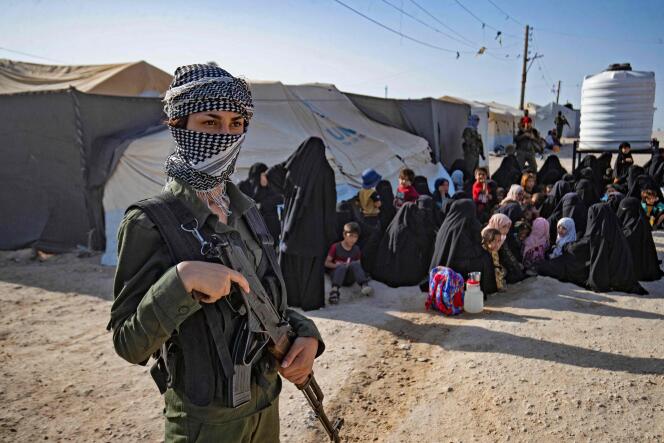


France on Tuesday, September 16, repatriated three women and 10 children from Syrian prisons for alleged jihadists, anti-terror prosecutors said – a move that remains divisive a decade after the 2015 attacks in Paris.
More than five years after the Islamic State group's territorial defeat in the region, tens of thousands of people are still held in Kurdish-run camps and prisons in northeastern Syria – many with alleged or perceived links to IS.
The women are aged between 18 and 34. Two of them have been taken into police custody, while the third faces possible indictment, according to France's anti-terror unit PNAT. The 10 children were handed over to child care services and will be monitored by PNAT and the local prosecutor's office, it added.
France's foreign ministry thanked "the Syrian transitional authorities and the local administration in northeastern Syria" for making the operation possible. As of June, some 120 children and 50 French women remained in the camps, according to United Families Collective, a group representing their families, which denounced the detention of children "guilty of nothing."
In February, the semi-autonomous Kurdish administration in northern Syria said that in coordination with the United Nations, it aimed to empty camps by the end of the year. But repatriation is a sensitive political issue in France, which has been a target of Islamist "terror" groups over the last decade, notably in 2015, when the Bataclan concert hall and the national stadium were attacked.
In 2022, Europe's top human rights court condemned France's refusal to repatriate two of its female citizens who were being held in Syria after joining their Islamist partners. In a separate case, three women went on trial on Monday in Paris, accused of traveling to the Middle East to join IS and taking their eight children with them. One of the women is a niece of Jean-Michel and Fabien Clain, who claimed responsibility on behalf of IS for the attacks on November 13, 2015, when 130 people were killed in Paris.
